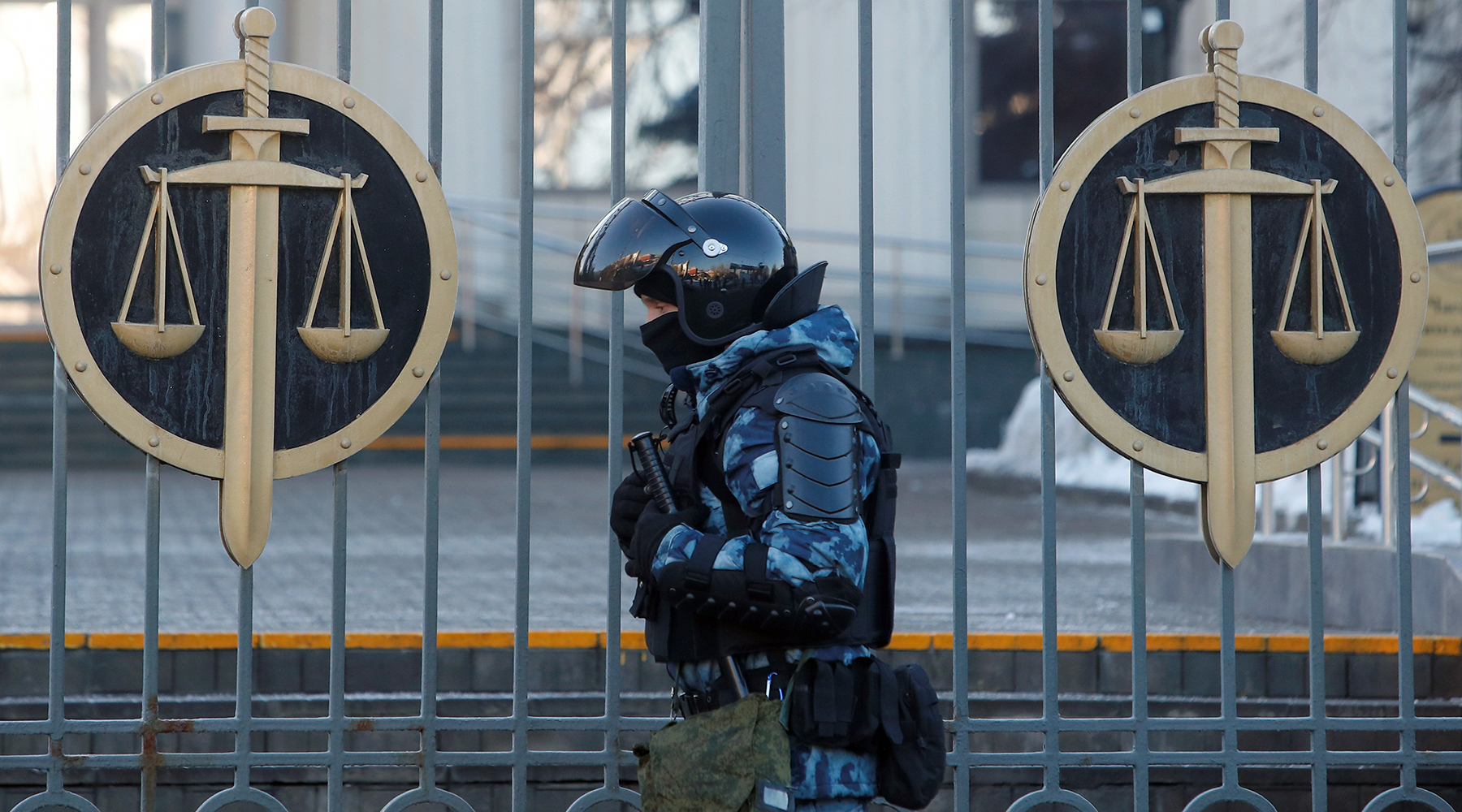The judge of the Simonovskiy District Court of Moscow, during a visiting session held in the Moscow City Court, satisfied the request of the Federal Service for the Execution of Punishments to replace the suspended sentence with a real one for Alexei Navalny in the Yves Rocher case.
The reason for the petition, which was supported by the prosecutor's office, is the repeated violation of obligations by the conditionally convicted person.
“Despite the preventive measures taken with him, Navalny repeatedly violated the deadline for appearing at the inspection.
The court considers the FSIN's submission to be satisfied, ”said judge Natalya Repnikova.
At the same time, the period spent by the blogger under house arrest, as well as being in custody from January 17, 2021, when Navalny was detained after returning from Germany, will be counted.
In addition, he will be under arrest pending the entry into force of the sentence.
The blogger's lawyers have already announced that they are going to appeal the verdict.
As a reminder, on December 30, 2014, the Zamoskvoretsky Court of Moscow sentenced Navalny to a 3.5-year suspended sentence with a probation period of five years in the case of fraud against Yves Rocher and the Multidisciplinary Processing Company.
His brother Oleg received 3.5 years of real imprisonment.
In August 2017, the court extended Alexei Navalny's probationary period for a year due to violations - until December 29, 2020 inclusive.
RIA News
© Press Service of the Moscow City Court
A representative of the Federal Penitentiary Service, during his speech at the meeting, noted that Navalny seven times did not appear for registration with the criminal executive inspectorate, as a result of which he was issued five warnings about the possibility of replacing the suspended sentence with a real one.
In addition, he violated public order more than 50 times, which is also a violation of the conditions for the supervision of a suspended sentence.
"In connection with repeated violation of the rules of probation, I ask the court to cancel the suspended sentence for Navalny and carry out the real punishment in the form of three years and six months in a general regime colony," said a representative of the Federal Penitentiary Service.
Later, prosecutor Yekaterina Frolova added that Navalny "maliciously evaded the execution of punishment" and did not inform the FSIN of his whereabouts after being discharged from the Charite hospital in Germany: "He moved freely throughout the country, visited various places and gave interviews to the media." ...
In addition, she recalled that Navalny is the only twice conditionally convicted person in the Russian Federation.
“No one else has been subjected to such extreme leniency of the court,” she said.
In connection with all of the above, the prosecutor supported the FSIN's proposal to replace the suspended sentence with a real one, asking to set off the period of his being under house arrest during the hearing of the case by the court on the basis of “one day of house arrest for one day in the colony”.
Meanwhile, during the meeting, lawyer Vadim Kobzev called the persecution of his client "political Chernobyl" and quoted one of the characters in the HBO series of the same name.
At the same time, Alexei Navalny himself received a reprimand from the judge for the excessive politicization of his speech and insults to the authorities.
“I want to interrupt you, let's get back to the show, I ask you.
You didn't say anything about the show.
Let's get back to the process, the judge said.
“We are not holding a rally now, you are not giving a position on presentation”.
Reuters
© Maxim Shemetov
Another important aspect of the meeting in the Moscow City Court was the presence of a significant number of foreign diplomats.
As RIA Novosti reported, more than a dozen countries, including Great Britain, Germany, Lithuania, Canada, Latvia, Poland, sent their representatives to the trial.
At the same time, the press service of the British Embassy said that the diplomatic presence at trials is allegedly "a common practice."
In turn, the diplomatic mission of Latvia indicated that their diplomats wanted "without intermediaries" to observe the process.
The Russian Foreign Ministry described this support for Alexei Navalny as "interference in the internal affairs of a sovereign state" and "self-exposure of the unsightly role of the West in attempts to contain Russia."
“The norm is the presence of foreign diplomats on the courts, when they try citizens of their country or international terrorists, people who have committed crimes in third countries, for example.
Although this norm exists, only many Western countries are not being implemented, "- wrote the official representative of the Russian Foreign Ministry Maria Zakharova on Facebook.

